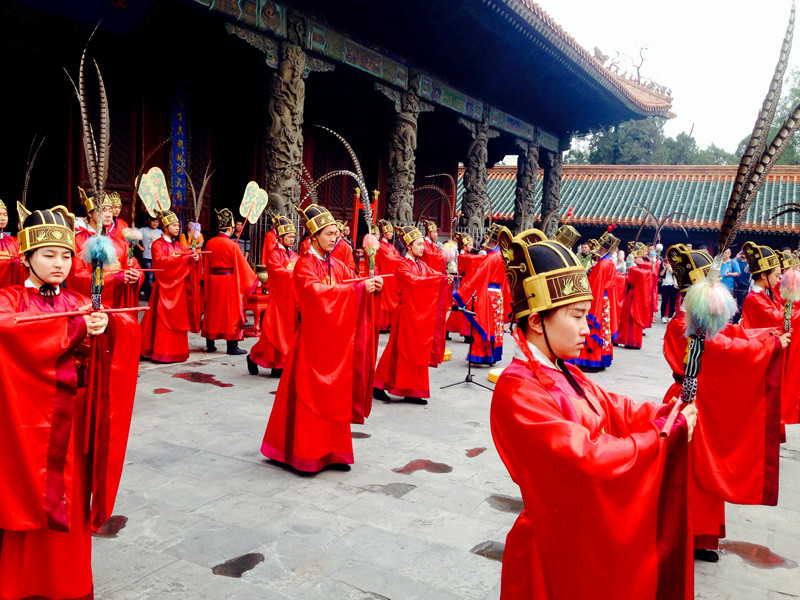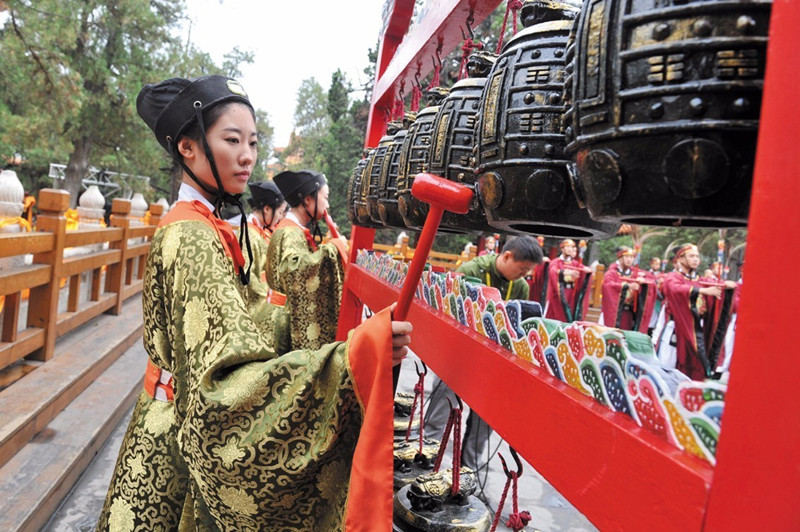
Temple and Cemetery of Confucius and the Kong Family Mansion in Qufu
The Temple and Cemetery of Confucius and the Kong Family Mansion in Qufu, located in Shandong Province, China, are UNESCO World Heritage Sites and significant cultural landmarks. Here’s an overview:
- Location:
- The Temple and Cemetery of Confucius, along with the Kong Family Mansion, are situated in Qufu, a city in Shandong Province, China.
- Qufu is the birthplace of Confucius (551–479 BCE), the renowned philosopher, educator, and founder of Confucianism, one of the most influential philosophical and ethical systems in Chinese history.
- Temple of Confucius (孔庙):
- The Temple of Confucius, also known as Kong Miao, is a complex of buildings dedicated to the memory of Confucius and the promotion of Confucian teachings.
- Construction of the temple began in 478 BCE, shortly after Confucius’ death, and it has undergone numerous renovations and expansions over the centuries.
- The temple complex includes various halls, pavilions, gates, courtyards, and stone tablets inscribed with Confucian teachings and imperial commendations.
- It served as the center of Confucian worship and education throughout Chinese history, attracting scholars, officials, and students from across the country.
- Cemetery of Confucius (孔林):
- The Cemetery of Confucius, also known as Kong Lin, is the final resting place of Confucius and his descendants, including more than 100,000 graves spanning over 2,000 years.
- The cemetery is characterized by its serene atmosphere, towering trees, ancient stone tablets, and elaborate tomb structures dedicated to the Kong family members.
- The layout of the cemetery reflects Confucian principles of filial piety, respect for ancestors, and social hierarchy, with the graves arranged in accordance with the Confucian concept of “rites and music.”
- Kong Family Mansion (孔府):
- The Kong Family Mansion, or Kong Fu, is the ancestral home of the Kong family, the descendants of Confucius.
- It is a large compound consisting of residential buildings, ancestral halls, courtyards, gardens, and administrative offices, showcasing traditional Chinese architecture and design.
- The mansion served as the residence of the Kong family members, as well as the administrative center for managing the family’s estates, rituals, and social affairs.
- Cultural and Historical Significance:
- The Temple and Cemetery of Confucius, along with the Kong Family Mansion, are significant not only for their architectural and historical value but also for their role in preserving and promoting Confucianism, a key component of Chinese culture and identity.
- These sites have been places of pilgrimage, education, and cultural exchange for centuries, attracting visitors from China and around the world who come to pay homage to Confucius, study Confucian philosophy, and explore Chinese history and heritage.
Overall, the Temple and Cemetery of Confucius and the Kong Family Mansion in Qufu are important cultural landmarks that reflect the profound influence of Confucianism on Chinese society and civilization. They offer visitors a unique opportunity to delve into the teachings, traditions, and legacy of Confucius and his descendants.















